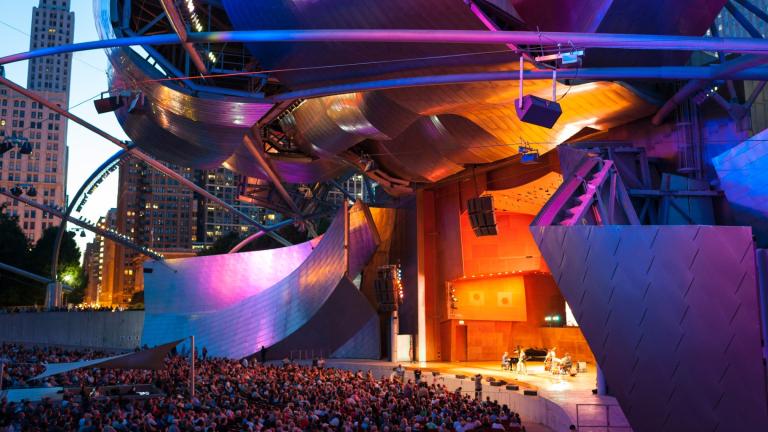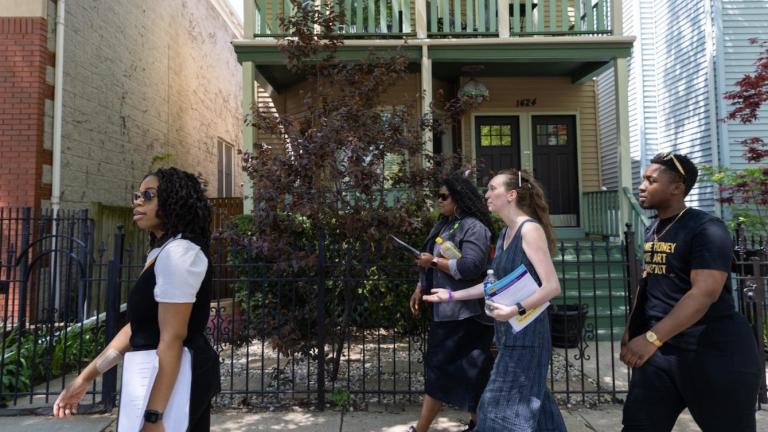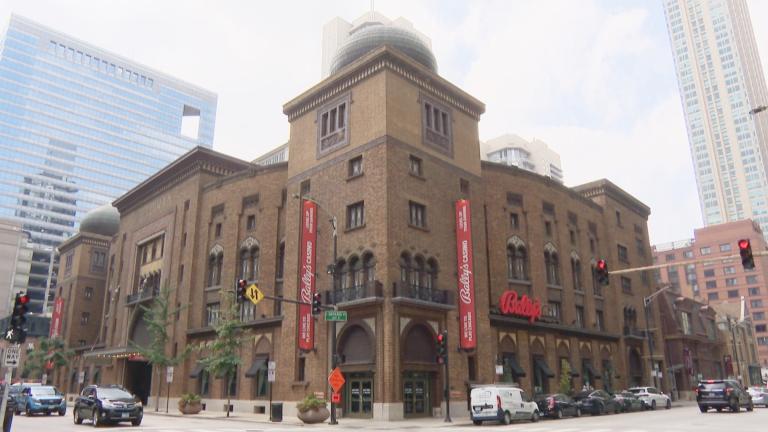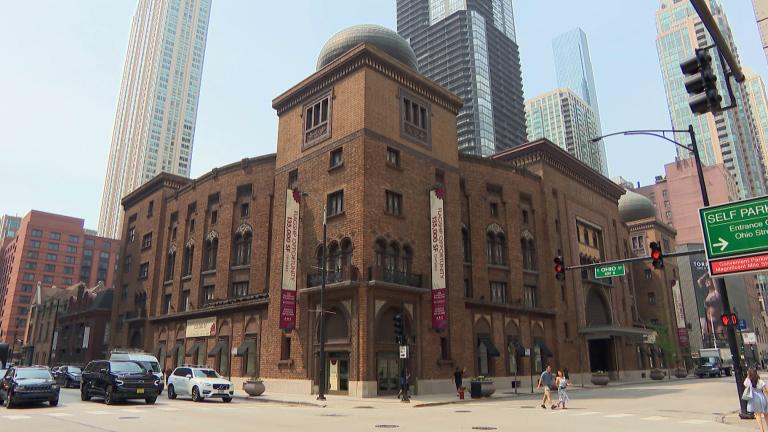More than 80 teams applied for the inaugural Chicago Prize, and on Thursday it was announced that after a yearlong competition, a group from Auburn Gresham had nabbed the $10 million grant, with plans to use the funds to develop a healthy lifestyle hub and renewable energy and urban farming campus.
The Chicago Prize, sponsored by the Pritzker Traubert Foundation, sought to invest in collaborative initiatives developed by leaders within communities on the city’s South and West sides, rewarding ideas generated by people who’ve worked over the years, or even decades, to improve their neighborhoods.
Greater Auburn Gresham Development Corporation (GAGDC), Urban Growers Collective and Green Era Partners — headed by Carlos Nelson, Erika Allen and Jason Feldman, respectively — partnered on the winning submission, dubbed “Always Growing, Auburn Gresham,” which was selected from six finalists.
“Always Growing, Auburn Gresham is the kind of bold, innovative work, rooted in deep community partnerships that is needed to make our city more equitable and vibrant,” said Penny Pritzker, co-founder of the foundation, with her husband Bryan Traubert.
News of the win left Allen overwhelmed.
“It’s still surreal, like being in a dream, it’s totally surreal. Just so many tears,” said Allen. “To know what this is going to mean, to have a community empowered to own and operate the facilities that are essential for quality of life. To have health care and wrap-around services and employment opportunities. To have a facility that can grow food and create energy and provide education and inspiration to young people and folks returning from incarceration — all happening within a community that really represents the challenges that we’ve been up against for the last 130 years. To see that tide shift and in such a significant way, to be part of a cohort of other finalists that are doing the same thing and to be part of the amazing community in Chicago is … too many tears.”
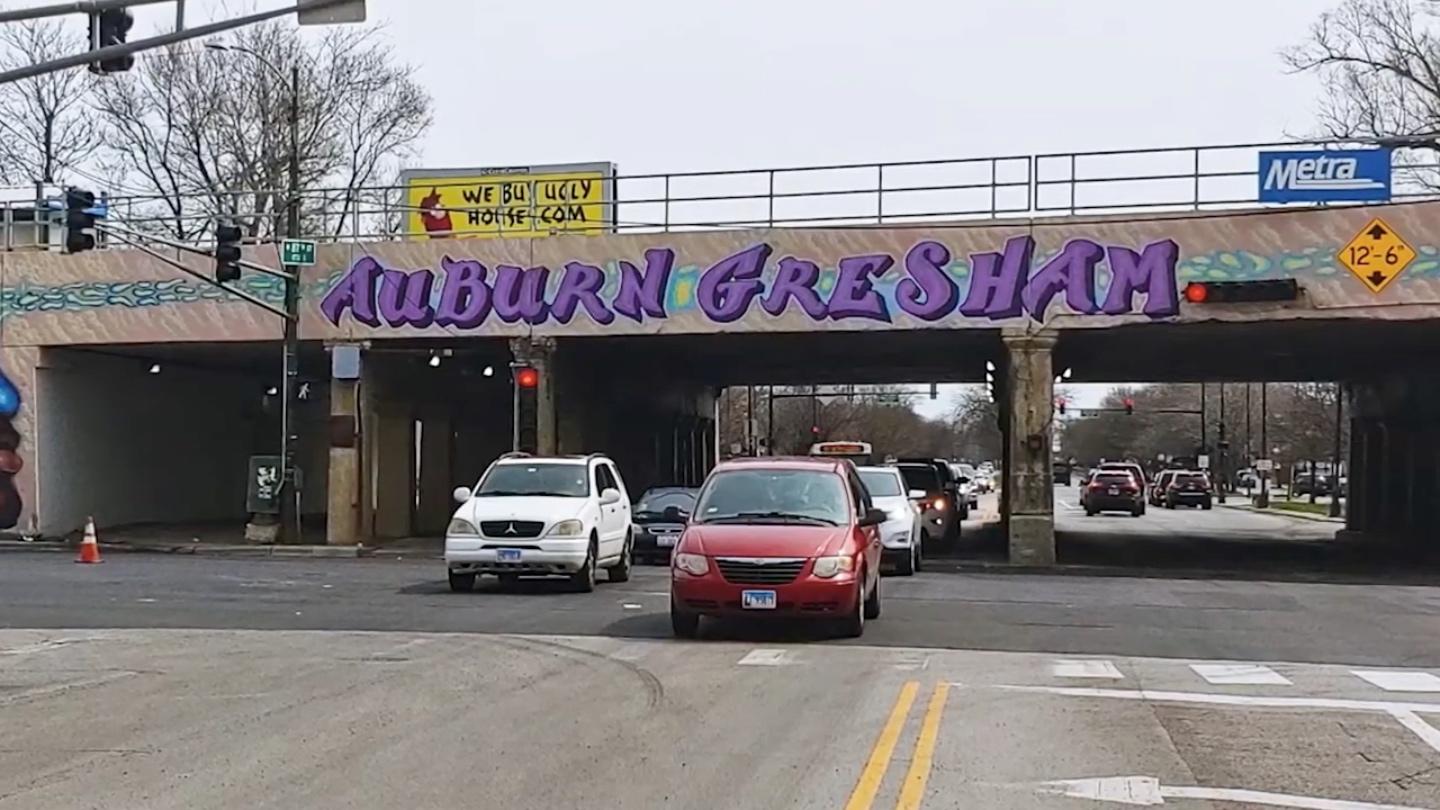 A pair of ambitious projects are coming to Auburn Gresham, thanks to a $10 million grant from the Chicago Prize. (Pritzker Traubert Foundation / YouTube)
A pair of ambitious projects are coming to Auburn Gresham, thanks to a $10 million grant from the Chicago Prize. (Pritzker Traubert Foundation / YouTube)
The Always Growing, Auburn Gresham proposal encompasses a pair of ambitious projects at two separate sites.
GAGDC is taking the lead on developing the healthy lifestyle hub, which involves the restoration of a long-vacant building on West 79th Street near Halsted Street, acquired by GAGDC in 2019. Once open, the hub will provide a host of health services — medical care, dental, behavioral health, nutrition and wellness — in an area that’s been described as a health care desert.
The four-story building will also house a digital community center, a Black-owned sit-down restaurant, a minority-owned pharmacy, and social services including workforce development, tutoring and housing assistance.
In addition to funding from the Chicago Prize, the healthy lifestyle hub received $4 million from the city in June as part of the Invest South/West program.
The renewable energy and urban farm campus will rise on a vacant parcel at 650 W. 83rd St. The brownfield was used for decades as an impound lot by the Chicago Police Department, and before that was one of International Harvester’s manufacturing sites. Green Era acquired the land from the city in 2015.
Both projects are repurposing vacant buildings and vacant land, so there’s no displacement of existing businesses or residents, Nelson noted.
Urban Growers Collective will manage the urban farm and plans to address local food insecurity by growing 14,000 to 26,000 pounds of food per year, serving customers at a planned outdoor market and supplying produce to Fresh Moves Mobile Markets, which provide fresh food to 5,000 low-income residents on the South and West sides. Community engagement and an extensive educational curriculum are also a significant part of Allen’s vision for the farm.
On the renewable energy side, the Always Growing team presented plans for Green Era to manage an anaerobic digester, which converts food waste into clean energy and also creates nutrient-rich compost that supports urban farming, thereby creating a circular economy.
The digester, Allen explained, is a very expensive composter that basically works like a human’s digestive system, except it’s made from metal.
“Microorganisms are eating the food waste, methane gas rises, it’s captured, goes through filters and then it gets pressurized and pushed into the People’s Gas pipeline, the same way that if you have a solar panel it goes into the grid,” Allen said.
There’s money to be made from the digester, she said, both by selling the compost and also by charging to process food waste collected by haulers. A portion of those profits would be reinvested in the community through an arrangement that gives GAGDC a stake in the digester.
“In the past, when these kinds of technological innovations begin to take root the beneficiaries typically aren’t Black folks,” Allen said. “And I’m just excited to have young people see this in their community and to be inspired to become engineers or to come up with some genius new way of doing something.”
 The Alway Growing, Auburn Gresham team getting the good news of their Chicago Prize win on a Zoom call. (Pritzker Traubert Foundation / YouTube)
The Alway Growing, Auburn Gresham team getting the good news of their Chicago Prize win on a Zoom call. (Pritzker Traubert Foundation / YouTube)
The Always Growing team estimated it would create 300 construction jobs and 300 permanent jobs, ranging from farmers to physicians.
Those jobs won’t appear overnight, and the transformational change promised by the healthy lifestyle hub and urban farming campus is years down the road, Allen said, but it’s coming.
The way she sees it, the real impact of the Chicago Prize is that it gave people a seat at the table who’ve never even been in the room before.
“I looked at it as an opportunity to elevate the genius and talent of the folks who typically do not get recognized or have access to power and capital. It’s never, ‘Look at all of these brilliant folks who are doing this front line work, who are serving the community and have so many ideas and visions,’” she said.
“We’re super excited to be working with the Pritzker Traubert Foundation and their team and all of the advisers. It’s like, that’s almost the biggest award, is just being able to really get that deep insight and understanding of systems that honestly, we typically don’t have access to. And I think that’s been part of their strategy, to really break down those walls.”
It’s a start, said Bryan Traubert.
“We all know that Chicago’s racial and ethnic inequities didn’t happen by chance. There was decision after decision after decision both by government and by business that have left us with the situation that we have. And so just as these things have happened by active decisions, we can address these things also with active decisions,” he said. “And Chicago Prize is a small part of that.”
Also on Thursday, the foundation announced an additional commitment of $2.5 million in development funds to the other finalist teams from Austin, Englewood, Little Village, North Lawndale and South Chicago.
Contact Patty Wetli: @pattywetli | (773) 509-5623 | [email protected]
Note: This story was first published on Aug. 6, 2020. It has been updated.

